Me? Teach Shakespeare? Then it has to be easy.
Shakespeare. Just the name strikes fear into many a homeschool mom’s heart. Maybe even the same fear that calculus or physics or research paper does. So, I totally understand why you’d say: “Me? Teach Shakespeare? Then it has to be easy.” And, today I’ll tell you how it can be!
I first decided to try out Shakespeare with my kids when I discovered that Charlotte Mason, the master of leading the homeschool family into a relaxed educational atmosphere, believed that Shakespeare should be part of the curriculum. And I wondered like you might be wondering, “How does this fit in?”
Most of us probably had some introduction to Shakespeare in high school, but most of us probably didn’t enjoy it or understand it.
Let’s face it. His writing is really, really difficult for us. And, as generations continue to grow further and further away from when he lived, it grows even more difficult.
But, let’s take a step back just to start at the beginning, just in case there is someone who isn’t familiar with who exactly Shakespeare is.
Disclosure: I get commissions for purchases made through affiliate links in this post.
Who Was William Shakespeare?
William Shakespeare is perhaps one of the greatest English writers of all time. He lived in England from 1564-1616. Yes, over 400 years ago!
Shakespeare wrote 37 plays, including Romeo and Juliet, A Midsummer Night’s Dream, and Hamlet. He wrote 154 sonnets, which are short poems with 14 lines and a strict rhyme scheme. He also wrote some long poems such as Venus and Adonis.
In London, Shakespeare was successful as an actor and had a theater called the Globe Theatre in addition to being a well-known playwright. By the way, they have rebuilt the Globe Theatre and you can go see Shakespeare plays in it today!

Shakespeare’s plays can be categorized into 5 categories.
- Tragedies have a sad ending. The hero usually starts off well but ends up tragic.
- Comedies have happy endings, such as weddings. They are often love stories where obstacles are overcome and love wins out in the end.
- A “Problem” play is a type of comedy that has a dark side. For example, the play might end with a wedding, but it’s with a man who doesn’t love his wife.
- A “Romance” is another type of comedy where the characters go on a long journey and grow and change as they age.
- History plays tell the story of real-life people and events.
Here are some Facts about Shakespeare to share with your kids.
So, why did Charlotte Mason think it was important for her students to study Shakespeare?
Here is Charlotte in her own words:
“And Shakespeare?
He, indeed, is not to be classed, and timed, and treated as one amongst others,–he, who might well be the daily bread of the intellectual life; Shakespeare is not to be studied in a year; he is to be read continuously throughout life, from ten years old and onwards. But a child of ten cannot understand Shakespeare. No; but can a man of fifty? Is not our great poet rather an ample feast of which every one takes according to his needs, and leaves what he has no stomach for?A little girl of nine said to me the other day that she had only read one play of Shakespeare’s through, and that was A Midsummer Night’s Dream. She did not understand the play, of course, but she must have found enough to amuse and interest her.How would it be to have a monthly reading of Shakespeare–a play, to be read in character, and continued for two or three evenings until it is finished? The Shakespeare evening would come to be looked on as a family festa; and the plays, read again and again, year after year, would yield more at each reading, and would leave behind in the end rich deposits of wisdom.We probably read Shakespeare in the first place for his stories, afterwards for his characters, the multitude of delightful persons with whom he makes us so intimate that afterwards, in fiction or in fact, we say, ‘She is another Jessica,’ and ‘That dear girl is a Miranda’; ‘She is a Cordelia to her father,’ and, such a figure in history, ‘a base lago.’ To become intimate with Shakespeare in this way is a great enrichment of mind and instruction of conscience. Then, by degrees, as we go on reading this world-teacher, lines of insight and beauty take possession of us, and unconsciously mould our judgments of men and things and of the great issues of life.”~ Charlotte Mason
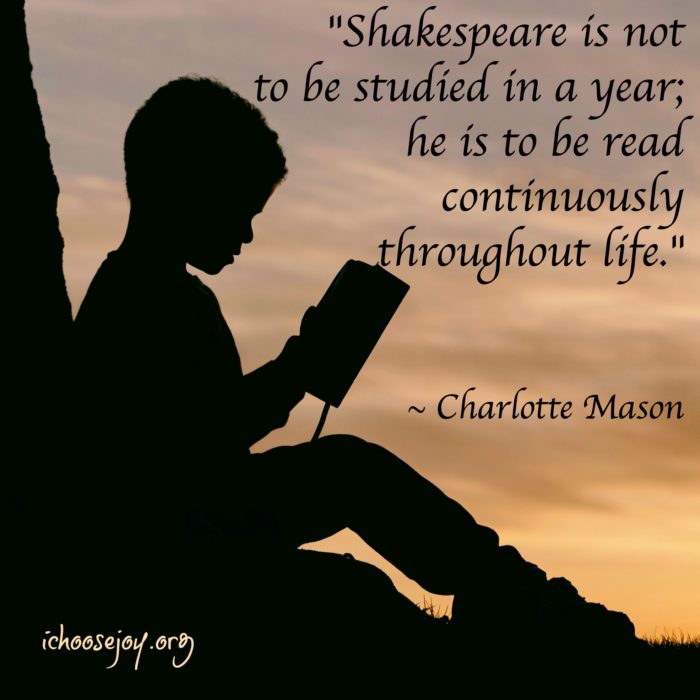
Charlotte Mason also said:
“Shakespeare was as great a philosopher as he was a poet. That’s what he set out to teach us in every line. His characters ‘Leontes,’ ‘Othello,’ ‘Lear,’ ‘Prospero,’ ‘Brutus,’ demonstrate the same thing: that a man’s reason will try to bring infallible proofs to any notion that a person decides to take up. There’s no shortcut and no way around it, the art of life takes a long time to learn.”~ Charlotte Mason
How Shakespeare Influenced and Changed the English Language
- love is blind
- my own flesh and blood
- set your teeth on edge
- knock knock, who’s there?
- without rhyme or reason
- laughing-stock
- didn’t sleep a wink
- wild goose chase
- if the truth were known
- green-eyed jealousy (or green-eyed monster)
- tongue-tied
- budge an inch
- seen better days
- fair play
- foul play
- dead as a doornail
- lord and master
Here’s a book to help your kids learn about it: Will’s Words: How William Shakespeare Changed the Way You Talk by Jane Sutcliffe.
Learning Other Disciplines Through Shakespeare
Literary Analysis
——————————–
But, isn’t Shakespeare Boring?
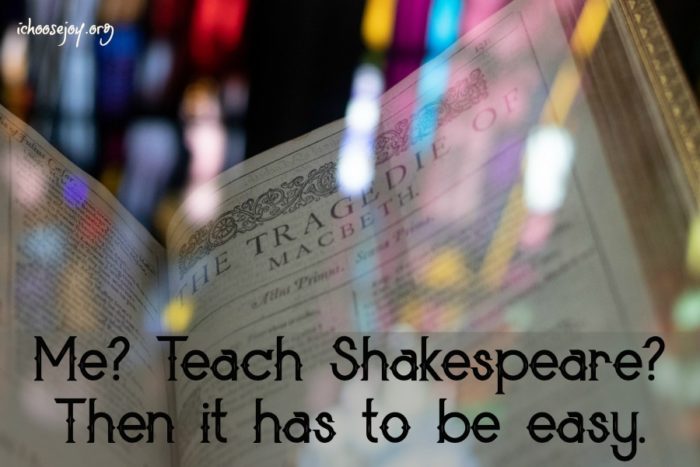
Me? Teach Shakespeare? Then it has to be easy
I can’t agree more. As a busy homeschool mom of 8, with a home business, and not much knowledge of Shakespeare to start with, it has to be totally easy! I will also tell you I have a lot still to learn; I am most definitely not a Shakespeare expert.
Thankfully, because Shakespeare is so influential in English society, even to this day, there is no end to the websites, books, curriculum, movies, Youtube videos, classes, courses, guides, etc. that you can use to make it easy to teach Shakespeare in your homeschool. Much of it can even be found or used for free!
Start Shakespeare with Young Kids so They (and you) Learn to Enjoy Him
There are three things I recommend.
1. Starting in the very earliest years, you can read, listen to, and/or watch adaptations of Shakespeare’s plays for children–that is, not the full version that Shakespeare actually wrote.
If kids learn to love the stories and characters at an early age, when they read the real plays later on, they are that much further along in their appreciation and understanding of Shakespeare. The simplest thing to do is to start reading Shakespeare’s stories. The stories themselves are anything BUT boring!
My favorite Shakespeare storybook resource is Usborne’s Stories from Shakespeare.
(I just discovered this wonderful book is out of print! If it isn’t available at your library, try your local homeschool connections to see if anyone has it to sell, or try these online used book resellers to find a copy: Book Outlet, Ebay, Abebooks, and Half-Price Books.)
Read these stories to your kids of any age BEFORE you begin the actual reading of a full play. That way both you and your kids understand the plot and characters before adding in the difficult Shakespeare language.
The book includes the following 10 Shakespeare plays in prose/story format, with colorful pictures!
- Twelfth Night
- Macbeth
- Romeo and Juliet
- The Taming of the Shrew
- The Tempest
- A Midsummer Night’s Dream
- Hamlet
- The Merchant of Venice
- As You Like it
- The Winter’s Tale
If you’re looking for some other Shakespeare resources for elementary and younger kids, look at these:
Wonderful Shakespeare Adaptation Resources
- Shakespeare for Children as told by Jim Weiss (audiobook)
- Usborne’s Stories from Shakespeare
- Beautiful Stories from Shakespeare by Nesbit
- Lamb’s Tales from Shakespeare
- Shakespeare: The Animated Tales (video)
Shakespeare Recommendations for Preschoolers
Even picture books and board books of Shakespeare’s stories are now available!
A Midsummer Night’s Dream: A Fairies Primer by Jennifer Adams
Shakespeare’s Seasons by Miriam Weiner
Romeo & Juliet: A BabyLit® Counting Primer by Jennifer Adams
Fun Shakespeare Activities Young Kids Can Do
- Coloring Pages
- Shakespeare Party with lots of ideas
- Shakespeare Sticker Book
- Puppet Theater
——————————–
When to Study, Read, and/or Watch Each Full Play?
Suggestions by Susan Macaulay and Karen Andreola
“We spread an abundant and delicate feast in the programmes and each small guest assilmilates what he can. The child of genius and imagination gets greatly more that his duller comrade but all sit down to the same feast and each one gets according to his needs and powers.”~ Charlotte Mason
Here is Karen Andreola’s “Secret Plan” for Shakespeare:
- Read aloud the story of one of the comedies.
- Watch the play on video and discuss it.
- Listen to professional actors read the full play.
- One play a year for elementary through 8th grade; two plays a year for high school (adding the tragedies in high school).
Suggestions from Simply Charlotte Mason and Ambleside Online
The website Simply Charlotte Mason recommends reading one play a year. The website Ambleside Online recommends one per term (three per year). It’s up to you!
Which specific plays did Charlotte Mason herself include in her curriculum?
Macbeth, Coriolanus, As You Like It, King Lear, Twelfth Night, Henry VIII, Merchant of Venice, A Midsummer Night’s Dream, King John, The Tempest, Julius Caesar, Richard II, Henry V, Hamlet, Much Ado About Nothing, The Taming of the Shrew, Richard the III, The Winter’s Tale, Romeo and Juliet, Othello, and Cymbeline.
Which plays did Miss Mason never have her students read?
All’s Well That Ends Well, Antony and Cleopatra, Comedy of Errors, Henry IV (all parts), Love’s Labour’s Lost, Measure for Measure, Merry Wives of Windsor, Pericles, Timon of Athens, Titus Andronicus, Troilus and Cressida, and Two Gentlemen of Verona.
Some of these are not appropriate for students or just aren’t as good as his other plays.
These are my recommendations (with help from the website Simply Charlotte Mason and my own experience):
At second grade (or wait until age 10 as Miss Mason suggested), you can study the following more in-depth (as opposed to simply reading the story in a storybook).
Second graders and up:
- A Midsummer Night’s Dream (Comedy set in the woods where several couples encounter fairies and magic spells)
- The Comedy of Errors (Comedy about the confusing adventures of identical twins and how they eventually save their father’s life.)
- As You Like It (Comedy about two girls, one posing as a shepherd boy, who find a banished father and loving husbands in the forest.)
- Twelfth Night (Comedy about a girl who finds her identical twin brother and wins her true love amid a series of confusing events.)
Sixth graders and up:
- Julius Caesar (Tragedy about the death of Julius Caesar.)
- The Taming of the Shrew (Comedy about how a belligerent woman becomes a submissive wife.)
- The Tempest (Comedy about a group of people shipwrecked on an island who discover that isn’t wasn’t by chance that they were there.)
Ninth graders and up:
- Hamlet (Tragedy of the prince of Denmark who is doomed by his father’s murder to plot a bloody revenge.)
- Macbeth (Tragedy of an ambitious nobleman who is driven by an evil wife to murder his king.)
- Romeo and Juliet (Tragedy of forbidden and doomed love between Romeo and Juliet whose families are rivals.)
Morning Time Teens™: A Year of Ancient Literature
Your morning time doesn’t have to (and shouldn’t) end just because your kids get older!
I know I certainly didn’t want to stop it with my own kids.
The teen years are the best for wonderful discussion times and making sure that your kids have the solid grounding that you’ll want them to have before they leave home.
That’s why I’ve created Morning Time Teens™!
The second in the series is what I’ll be doing with my teens for the 2023-2024 school year: A Year of Ancient Literature! And, it includes Shakespeare’s Julius Caesar!
A Suggested Shakespeare Play Reading Schedule:
This schedule is from Ambleside Online and includes the 3 plays they recommend to be read each school year. If you have younger students, you could just read the story (from a storybook adaptation) rather than the full play.
2018-2019 School Year
Twelfth Night
Measure for Measure
As You Like It
2019-2010 School Year
Love’s Labor Lost
Macbeth
The Taming of the Shrew
2020-2021 School Year
A Midsummer Night’s Dream
Hamlet, Prince of Denmark
Much Ado About Nothing
2021-2022 School Year
Julius Caesar
The Two Gentlemen of Verona
Romeo and Juliet
2022-2023 School Year
Henry V
The Tempest
The Merchant of Venice
2023-2024 School Year
Twelfth Night
King Lear
Measure for Measure
2024-2025 School Year
As You Like It
Cymbelline
Macbeth
2025-2026 School Year
Othello the Moor of Venice
The Taming of the Shrew
Richard II
2026-2027 School Year
A Midsummer Night’s Dream
Hamlet, Prince of Denmark
Much Ado About Nothing
2027-2028 School Year
The Winter’s Tale
Henry V
The Merchant of Venice
2028-2029 School Year
Richard III
The Comedy of Errors
King Henry VIII
2029-2030 School Year
Twelfth Night
Measure for Measure
As You Like It
2030-2031 School Year
Love’s Labor Lost
Macbeth
The Taming of the Shrew
2031-2032 School Year
A Midsummer Night’s Dream
Hamlet, Prince of Denmark
Much Ado About Nothing
2032-2033 School Year
Julius Caesar
The Two Gentlemen of Verona
Romeo and Juliet
2033-2034 School Year
Henry V
The Tempest
The Merchant of Venice
——————————–
One Way I Taught Shakespeare to a Group of Kids
One semester at our homeschool co-op, I taught a Shakespeare class to a group of 7th-12th grade students. The exact class format we followed is now in an online course that is available for purchase called 10 Weeks of Shakespeare ~ Introductory Course for 7th-12th Grades.
For the one-hour class once a week, I used videos from YouTube to teach a different Shakespeare concept each week. I had the students do things to practice that concept (such as read a monologue out loud or memorize a line of Shakespeare). We watched part of the play A Midsummer Night’s Dream (so that we finished watching the entire thing by week 9). And, we practiced the script that we performed on Week 10 from Shakespeare’s Star Wars.
What I loved about this curriculum was that it was varied and rich. We used actual Shakespeare works and the Star Wars version to give variety and make it even more fun for the students. They enjoyed actually performing, rather than just reading, watching, and studying Shakespeare. The performing aspect was something I never did when studying Shakespeare in high school. I was amazed at how this made such a difference in the students’ enjoyment and understanding!
Another Idea for Performing Shakespeare with Upper-Level Students
A homeschool friend of mine shared with me how one summer her son joined a group of other students to work on and perform a Shakespeare play. What a great summer project. This particular one was Taming of the Shrew, set in the 1950s. They performed it outside. So fun!
So, there is another way to make Shakespeare more interesting for kids–have them perform outdoors and put a “twist” on the play by having it be set in another era.
The Hands-Off Easiest Way to Teach Shakespeare
For elementary students: Have them listen on their own to Shakespeare for Children as told by Jim Weiss (audiobook) and watch Shakespeare: The Animated Tales (video).
For older students: Have them do the online course 10 Weeks of Shakespeare ~ Introductory Course for 7th-12th Grades on their own. Then when they have finished that, have them listen to audio versions of full plays while they read along with the script.
Ideas to Aid in Understanding Shakespeare’s Plays
No Fear Shakespeare is a great option for the script because it has a side-by-side paraphrase so the readers can understand what’s going on. Find this available free online for 18 different Shakespeare plays.
Or, have the students listen to an audio version of the play while they read along. Folger Shakespeare Library has audio versions of 7 of Shakespeare’s plays online.
What else can you do to enrich a Shakespeare study?
- Act out the play in your own home, add friends for even more fun!
- Perform a puppet show of a play “in your own words” with finger puppets, sock puppets, Barbies, Action Figures, Lego Mini-Figures, etc.
- Enact some scenes from Shakespeare’s Star Wars
- Do a Shakespeare Unit Study or Shakespeare Lapbook
- Do a Picture Study of art inspired by Shakespeare
- Listen to Renaissance music or music written by composers who were inspired by Shakespeare
- Build a model of the Globe Theatre
- Go see a Shakespeare play performed live*
- Have a family movie night to watch a play (Here is another option to get suggestions of Shakespeare movies for family movie night.)
- Teach a Shakespeare class at a co-op
- Lead a Shakespeare summer camp
- Do a readers theater script adaptation
Helpful Resources for your Shakespeare Studies
- 10 Weeks of Shakespeare ~ Introductory Course for 7th-12th Grades online course: Fun lessons perfect for upper-grade students to do independently or for a teacher to use to lead a class through a study of Shakespeare at a homeschool co-op or school. Learn about how to pronounce Shakespeare, iambic pentameter, a biography of William Shakespeare, the Globe Theater, Elizabethan theater, and memorization and performance tips. Memorize speeches, read through and watch monologues, watch A Midsummer Night’s Dream, and perform an act from William Shakespeare’s Star Wars.
- William Shakespeare’s Star Wars
- Audio dramatizations from Arkangel Shakespeare
- Shakespeare in Three Steps from Simply Charlotte Mason
- Shakespeare in a Box
- Usborne Stories from Shakespeare
- Lamb’s Tales from Shakespeare
- Beautiful Stories from Shakespeare by Nesbit
- How To Teach Your Children Shakespeare by Ken Ludwig
- Shakespeare for Children as told by Jim Weiss (audiobook)
- Shakespeare: The Animated Tales
- Intro to Shakespeare: A Charlotte Mason Inspired Unit Study for Elementary Students online course
- Sparknotes
- Absolute Shakespeare
- Brightest Heaven of Invention: A Christian Guide to Six Shakespeare Plays
* What to watch out for when studying Shakespeare
Remember that Shakespeare wrote his plays for adults. Always be discerning in deciding whether a story-line is appropriate for the age and sensitivities of your particular child.
* It is quite common for film adaptations of the plays to include nudity, even if they aren’t rated R. I recommend watching them yourself before deciding to show it to your kids. (Sometimes you can just skip some scenes.)
It’s also common for Shakespeare acting troupes to include lots of bawdy dress or acting in their live performances. Call and ask questions before you purchase tickets.
Depending on the play or movie, there also might also be a lot of violence, blood, and gore. Just beware.
Last caveat: Preview every resource I have shared in this post before using with your students. I have not read, listened to, or watched everything listed.
Bibliography for this post:
- Charlotte Mason Help
- ThoughtCo
- Simply Charlotte Mason
- Charlotte Mason Poetry
- Higher Up and Further In
- Ambleside Online
- For the Children’s Sake by Susan Schaeffer Macaulay
- Charlotte Mason Companion by Karen Andreola
To learn more about Charlotte Mason’s method of education, I recommend:
- Charlotte Mason Homeschooling in 18 Easy Lessons by Cindy West
- The Charlotte Mason Companion by Karen Andreola (I LOVE this book!)
- For the Children’s Sake by Susan Schaeffer Macaulay
- Ambleside Online website
- Simply Charlotte Mason website
- Sign up for the Charlotte Mason Online Conference and get 25 video sessions from the most amazing homeschool parents talking all about homeschooling, parenting and living in a Charlotte Mason inspired way.

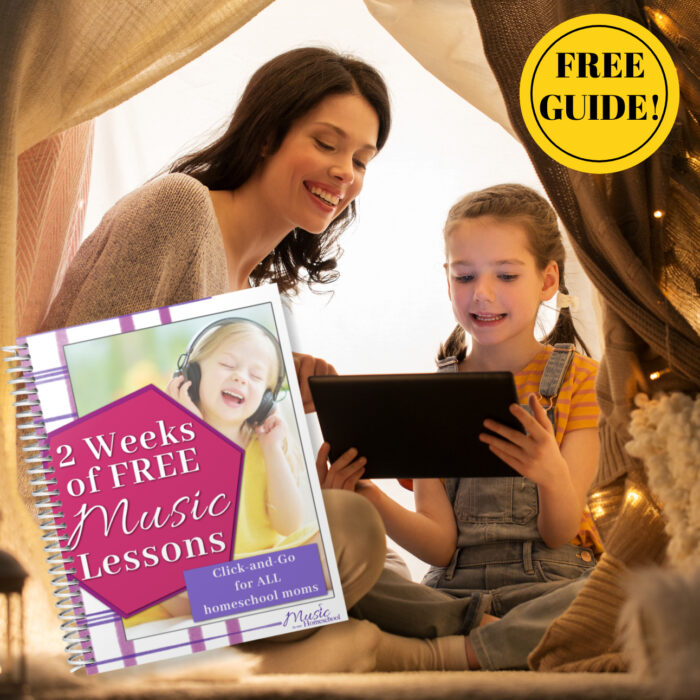
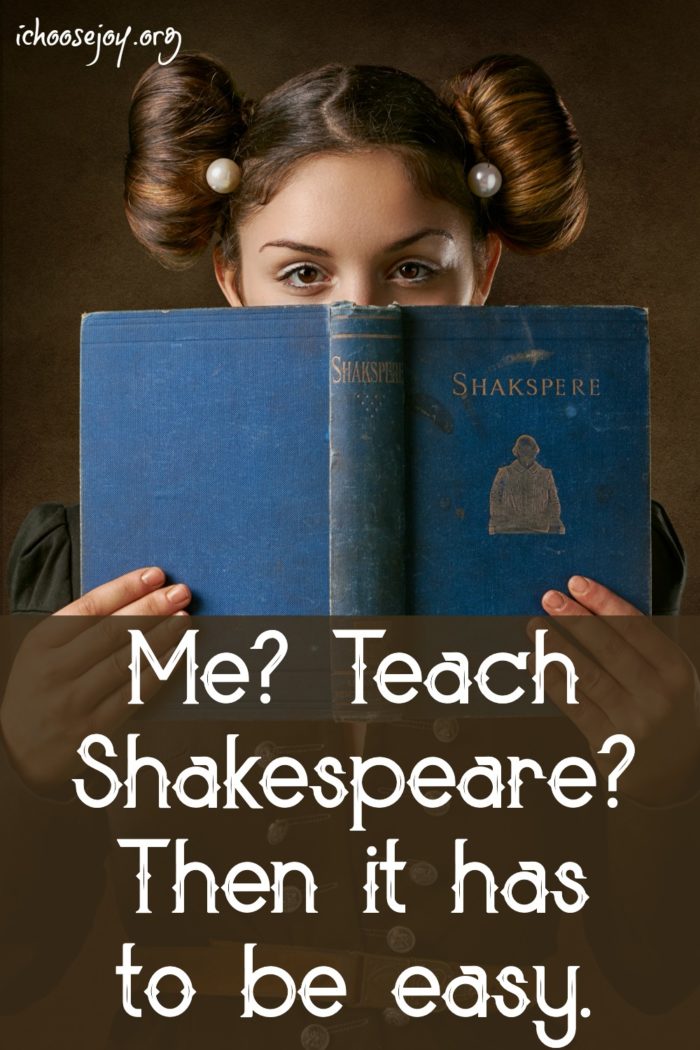




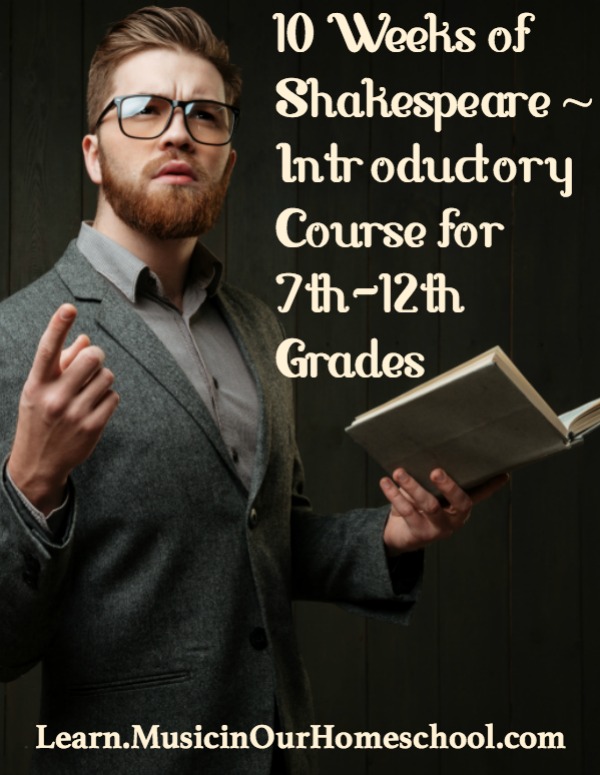








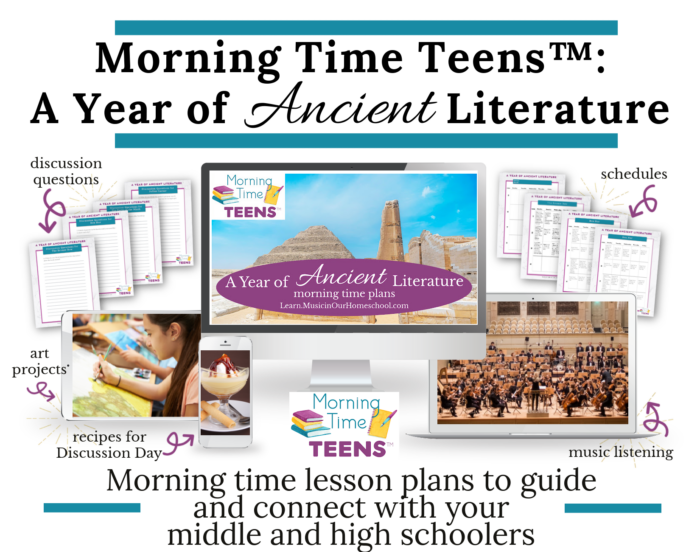

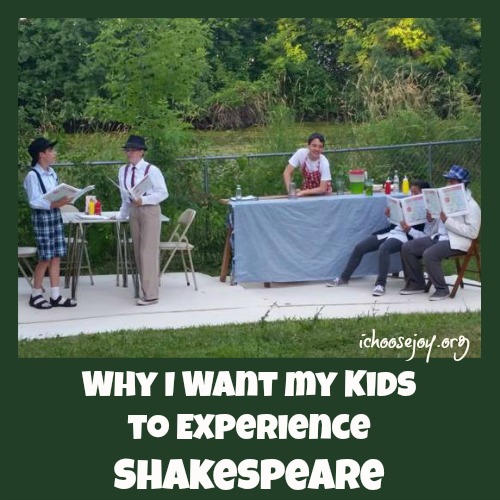




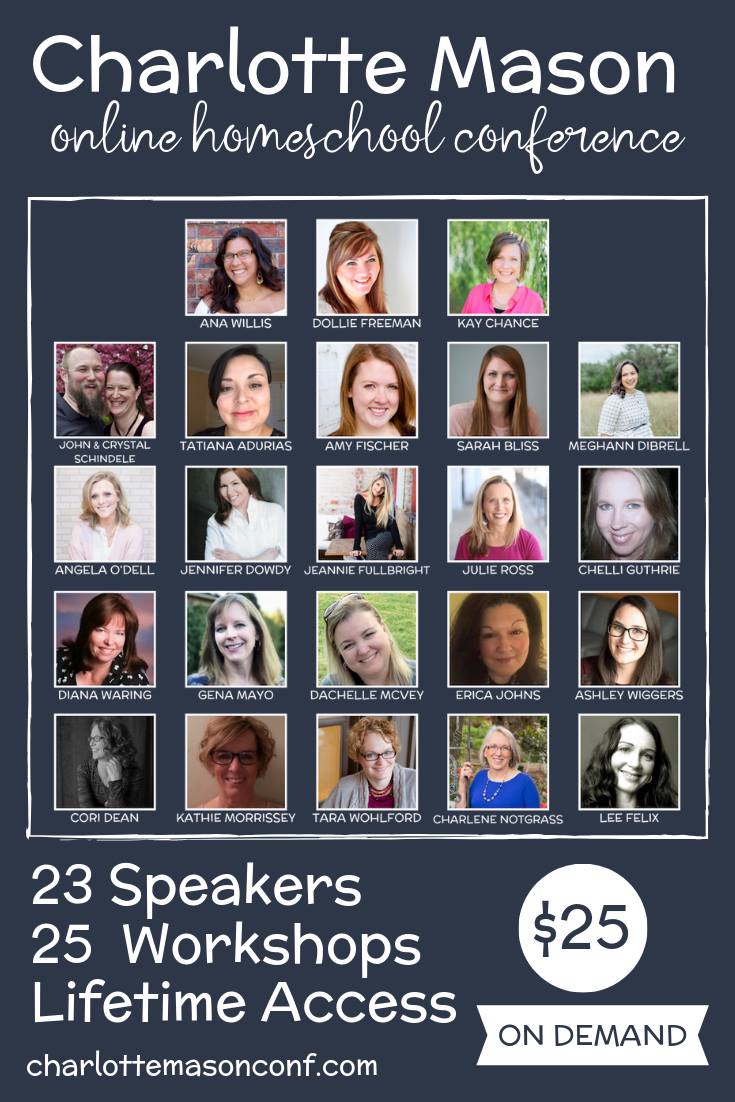
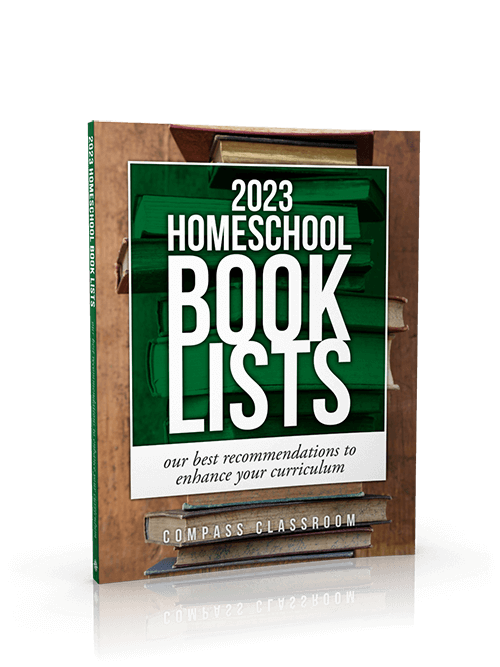

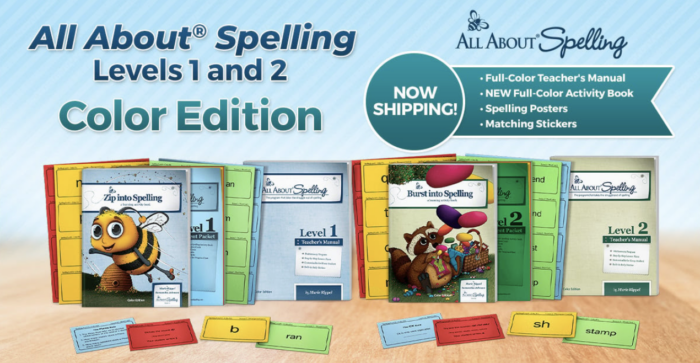


Thank you for this! I’m saving it to my “Homeschooling” tab for quick reference.
Usborne put out another book of Shakespeare geared towards kids. It’s titled ” Illustrated Stories from Shakespeare.” It’s wonderful! While it is modernized for easy understanding and readability, it also includes snippets of the actual text alongside beautiful illustrations.
https://usborne.com/us/illustrated-stories-from-shakespeare-9780794529970
Thank you! I sure love the older version. This one is probably even better. 🙂
~Gena
Hi Gina.
I had Shakespeare in High School Macbeth,Hamlet were the two plays the teacher focused on. After reading your Shakespeare post I just might get the old schoolbooks out of storage and re- read them Maybe!
Very interesting and informative piece.
Marion
Wonderful idea!
~Gena
Thank You Gena for this inspiring post. I studied Hamlet and Mac Beth in High School. I was not impressed. I did read Romeo and Juliet a few years ago. You have piqued my interest in reading Shakespeare in the future.
Marilyn
Personally, I still haven’t read Hamlet or Macbeth. I do like many of his other plays, though!
~Gena
Hi Gina. I’m considering using your 10-week Intro to Shakespeare class in our co-op next school year. Can you confirm that each student will need their own copy of “Verily, A New Hope”? Thank you!
Yes! If you’re going to do the play, or at least read through scenes with the students, it’s easier if each student has his or her own copy of the script/book. 🙂
~Gena